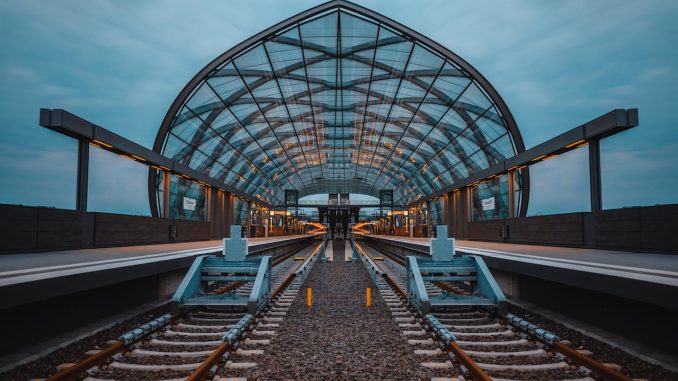
Morocco is now attracting the attention of European companies after issuing a call for tenders for 168 new trains to develop a local rail industry. In addition to the confirmed interest of Spanish construction company Talgo, Alstom has already supplied the first twelve high-speed trains now running on the Al Boraq service.
The French parent company, which is responsible for delivering these trains in 2018 following the signing of bilateral agreements between the two countries, will not however be a candidate for the contract, but the company’s management has left the negotiation of the contract to its Spanish subsidiary for the occasion, according to the business newspaper Eleconomista.
In fact, Alstom Spain will be responsible for developing and presenting the offer, and will take part in negotiations with ONCF to satisfy the call for tenders. The latter plans to purchase 150 trains for metropolitan shuttles, intercity services and high-speed trains, as well as 16 other high-speed trains, all available in the French industrial group’s portfolio, an advantage it intends to use against its competitors.
The Spanish subsidiary was already responsible for submitting a preliminary bid in the tender launched by ONCF in September 2022, which attracted 10 manufacturers from around the world.
According to the Spanish media, the reason behind this move is the need to bypass the complex diplomatic relations between Morocco and France. With this move, the company is also seeking to take advantage of the new geopolitical chessboard that has made Spain a privileged partner of the Moroccan government.
The possibility of Spanish companies winning the contract plays into the hands of Pedro Sánchez’s government, which is immersed in a plan to reindustrialize the economy that could be softened by such an important contract.
If successful, the Alstom plant in Barcelona would benefit from a substantial workload, allowing the Socialists to score a goal ahead of the Catalan elections and in the midst of the normalization of relations between the State and the Generalitat, which were severely damaged after the independence process.
The Spanish media recalls that the former head of the Moroccan-Spanish Economic Council, Houda Benghazi, revealed the possibility of an industrial relationship between the two shores of the Strait at a meeting held in Bilbao in October: “I think the next value chain we’ll have will be trains. Spain and Morocco will build the trains we use for the World Cup. It’s a
tender, but I’m sure my country will be smart and do it with the Spanish, not the Japanese,” she assured.
The mega-contract for the trains, which will be decided by a multi-stage competitive dialogue procedure, calls for the trains to be delivered between 2027 and 2030, a workshop to be set up on Moroccan soil to maintain the new units, and the implementation of an industrial development cluster that includes the construction of a new factory and the development of an ecosystem of rail suppliers and contractors similar to the one Portugal wants to set up.
Until the mega-contract is resolved, the Santa Perpètua de Mogoda plant is manufacturing an additional 87 streetcars for Casablanca, which will be delivered in the near future. The completion of internal milestones prompted the parent company to transfer the assembly of bogies for these units from Alstom’s Le Creusot center in the interior of France to the Pinto (Madrid) industrial plant, dedicated to the repair and maintenance of railway equipment.
Alstom’s Spanish subsidiary has been supplying various rail vehicles to the North African country for over ten years. In 2011, it delivered 190 Citadis streetcars for the Rabat and Casablanca transport systems, which are used daily by 100,000 and 220,000 people respectively.

Be the first to comment